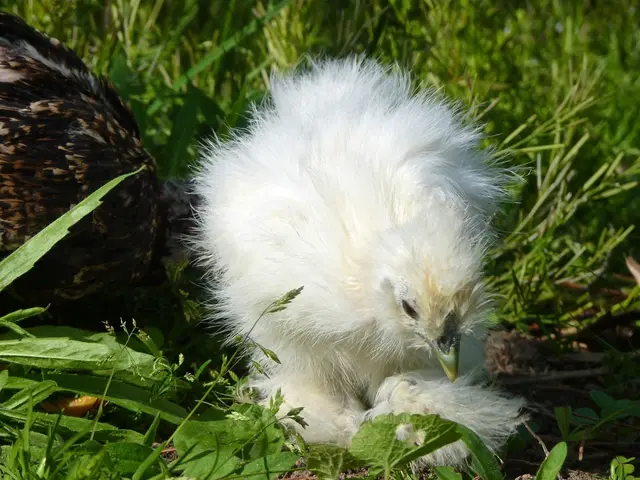Strategies for Deterring Raccoons from Your Residential Property and Garden
In their distinctive bandit masks, bushy ringed tails, and rotund bodies with a waddling gait, raccoons are a common sight. Native to North America, these critters can be found in every nook and cranny, from dense forests to coastal plains, swamps, and even bustling urban centers.
One reason for their thriving presence is their uncanny intelligence and adaptability. As Dr. Sheldon Owen, a wildlife extension specialist at West Virginia University, puts it, "raccoons are agile climbers and can manipulate objects with their dexterous paws. However, they can be quite destructive. If a raccoon spots a thin crack in siding, for instance, it will chew, dig, and figure out a way to enlarge the hole for a new den."
Getting to Know Raccoon Behavior
Known as opportunistic feeders, raccoons consume whatever they can find, from nuts and berries to fish and small animals like frogs, crayfish, and young birds. These nocturnal creatures aren't immune to foraging during the day, too. While they're often associated with raiding trash cans and ravaging chicken coops, they're also cunning enough to learn and teach their offspring how to exploit new food sources.
Unfortunately, their cleverness can lead to potential risks. Raccoons can carry harmful parasites like fleas, ticks, and lice, and may transmit serious diseases such as rabies and canine distemper. When they set up shop under your porch, deck, or in your crawlspace, attic, or chimney, their waste can create unpleasant odors, and their feces may contain roundworm eggs, potentially causing nerve damage or blindness in humans if not properly handled. Children are especially susceptible due to their tendency to play on the ground and put their hands in their mouths.
The Mystery of Raccoon Washing
You might have noticed raccoons apparently "washing" their food in water if it's nearby. However, this isn't a case of these critters practicing personal hygiene; instead, it's believed that water heightens their sensitive paws' ability to detect edible and inedible objects, especially while foraging in streams. While this technique isn't mandatory, and a raccoon will still dine even if water isn't present, it's just another example of their uncommon adaptability.
Recognizing Raccoon Activity
If you find garbage strewn everywhere and your trash can upended, a raccoon is likely to blame. Other signs include their long, slender tracks with claw marks, foreprints about 3 inches long, and hindprints ranging from 3 to 4 inches long. You may also hear them whining or growling as they set up house in your chimney, attic, or other sheltered spaces on your property.
Creating a Raccoon-Resistant Environment
Resorting to repellents or devices designed to frighten raccoons is generally ineffective because once they learn there's no real threat and food remains available, they'll ignore these methods. The most effective strategy is to eliminate potential food sources and exclude raccoons from various areas to keep them at bay. If raccoons aren't causing trouble and keep their distance, it's best to leave them be. However, if they become too much of a nuisance, there are steps you can take to make your yard less appealing to them, such as:
- Seal openings: Look for gaps and holes in and around your home, shed, or crawlspace that could be expanded for easy raccoon entry.
- Trim trees: Keep branches trimmed away from your home to prevent raccoons from accessing your roof and attic easily.
- Install chimney caps.
- Don't leave pet food outside: This invasion is an open invitation not only for raccoons but also for other unwanted visitors like mice, opossums, and skunks.
- Secure poultry: Keep poultry indoors at night and seal any gaps to prevent raccoons from easily reaching and pulling out birds through holes.
- Remove birdfeeders: If you suspect raccoons are feasting on your birdfeeders, it's best to take them down.
- Lock trash bins: Raccoons are strong and dexterous enough to work bungee cords off can lids. Use lockable trash cans instead.
Remember that raccoons can transmit rabies to people and pets, as well as distemper to unvaccinated pets, so they should never be handled, alive or deceased. If you encounter a raccoon acting lethargically, aggressively, or stumbling, or if it's curled up and sleeping in an exposed area near your home, contact your state's wildlife department.
For persistent raccoon issues or a family denning in your home, you may need to hire a nuisance wildlife specialist for removal. Expert help is crucial because a cornered mother will likely defend her offspring. Moreover, leaving babies behind accidentally could result in their death within your home.
- Appreciating cultural diversity adds depth to our southernliving, just as understanding raccoon behavior deepens our knowledge of animals and wildlife.
- If you enjoy outdoor recreation, be mindful of potential encounters with raccoons, especially in home-and-garden spaces, due to their adaptability.
- While pets bring joy and companionship, it's essential to consider raccoon-related risks such as parasites or diseases and take preventive measures like keeping them indoors at night.
- These critters may seem adorable with their bandit masks and dexterous paws, but their destructive nature, particularly on siding, can be a nuisance for homeowners.
- Engaging in activities and entertainment often means enjoying the outdoors, observe wildlife responsibly, and respect the boundaries to ensure coexistence with creatures like raccoons.
- In terms of lifestyle, it's important to create a raccoon-resistant environment by sealing openings, trimming trees, and securing trash bins to minimize the chances of raccoon encounters, ultimately maintaining a harmonious living space.








